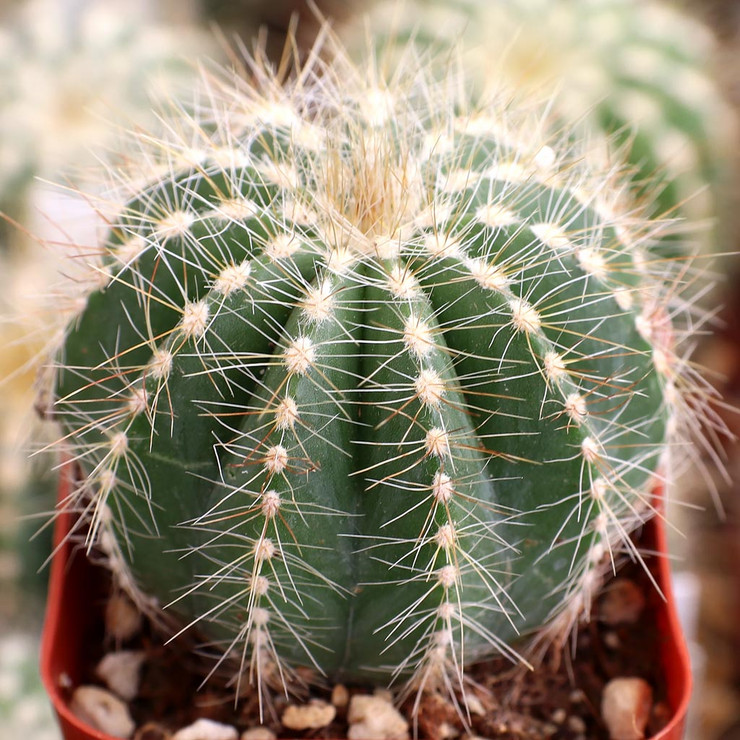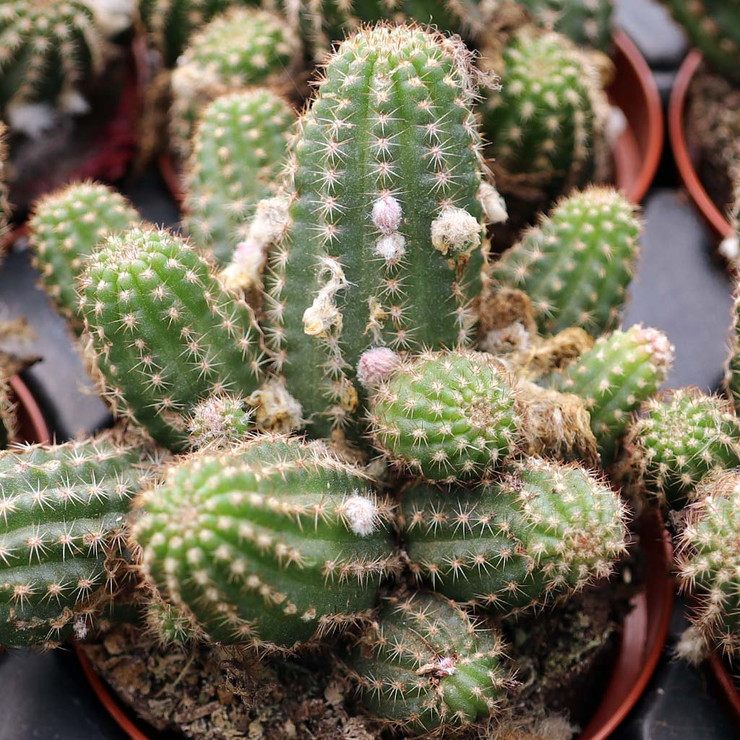Cactus Guide
Browse all available Cactus here.
Cactus (KAK-tus) (Cacti) will steal your heart with their charming, prickly forms and showy flowers. They require some caution when handling, but these super low maintenance plants can thrive indoors with bright sun, little water, and proper drainage. As the stunning products of harsh, arid climates, cacti are both the pinnacle of succulent perfection for enthusiasts and easy-to-grow starter plants for beginners.
APPEARANCE
- Form: Cacti can display a wide variety of sculptural forms, including flat paddles, round barrels, and branching columns. They maximize water efficiency by forgoing leaves in favor of water-storing stems. All cacti have areoles, or small bumps from which sprout flowers, branches, or spines.



- Spines: Varieties differ in the size and quantity of their spines (some are even spineless). Species of Opuntia have barbed glochid tufts that can easily pierce leather gloves and lodge painfully in skin. Use caution and tongs when handling.
- Flowers: Most cacti don't bloom frequently, but when they do it is with large, showy blooms that contrast stunningly with their normally spiny look. The flowers can be short-lived, but their evanescence makes them even more of a treat.


 CARE
CARE
- Light: Cactus should get 6+ hours of full sun each day, but they can grow happily indoors on a sunny window sill.
- Soil: Ideally, use a gritty, well-draining soil of 50%-80% mineral grit (coarse sand, pumice, or perlite). Most garden centers sell bags of cactus soil, but garden soil can also be amended with extra grit.
- Water: Deeply drench then wait for the soil to dry thoroughly before watering again. Frequency will depend on environmental conditions, so it is key to regularly observe your plants and the soil to gauge moisture content. To start, aim to water 1-2 times per month in the spring and summer, less in the fall and winter, and not at all if the temperature drops below freezing.
- Hardiness: Most of our cacti are not frost hardy, except the Opuntia, which can tolerate temperatures down to at least 10F.
Cactaceae is the largest botanical family of succulents, with over 1,700 species, all native to the Americas. They have ancient origins in evolutionary history and are adapted to diverse, arid climates including deserts, alpine regions, grasslands, and tropical forests. In some ways, they are the ultimate succulent, tolerating the harshest climates with extensive droughts, torrential rainstorms, hot, sunny days, and frigid nights. We love that they are both a practical, architectural choice for waterwise landscaping and a charming window sill plant that will occasionally reward with a giant, showy flower.

